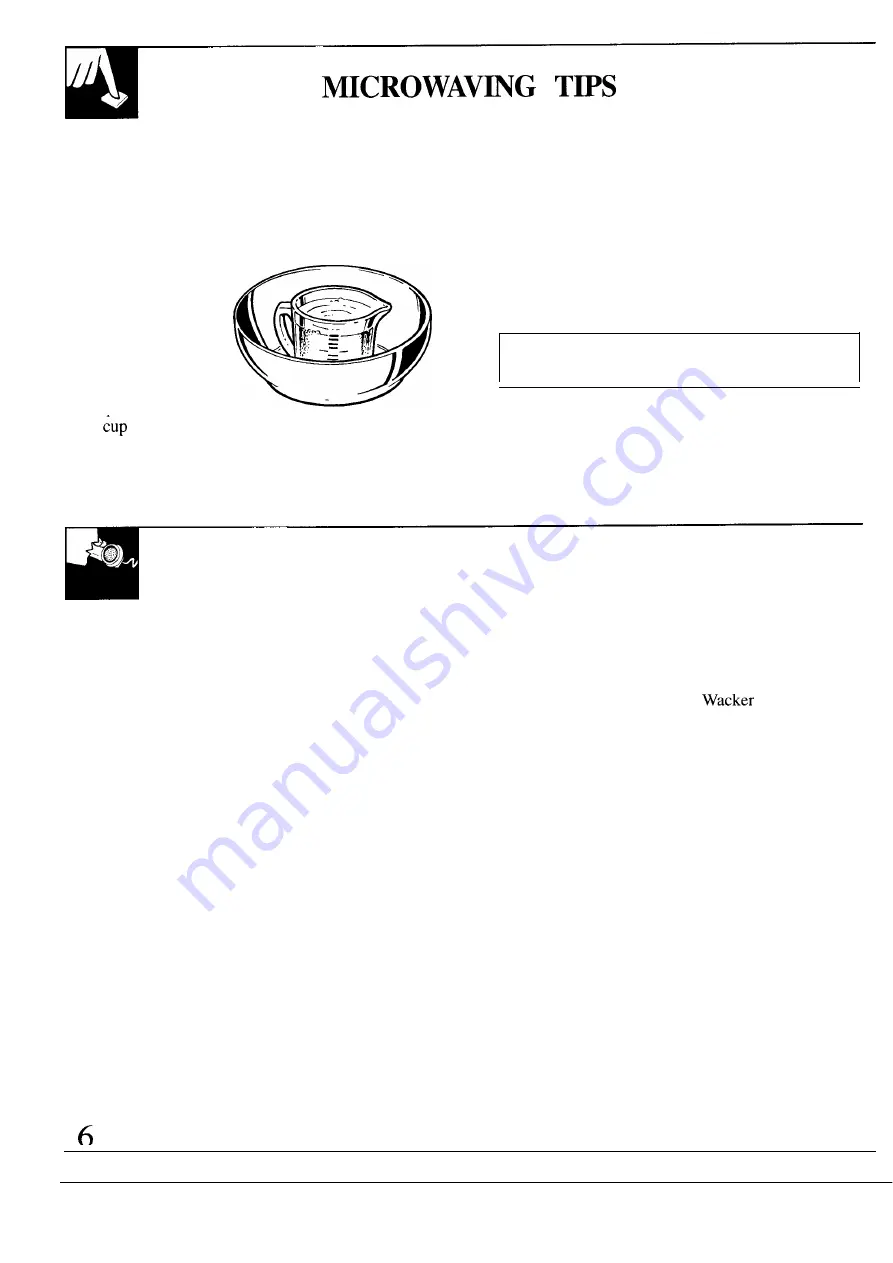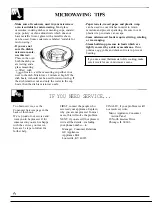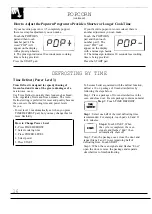
●
Make sure all cookware used in your microwave
oven is suitable for microwaving. Most glass
casseroles, cooking dishes, measuring cups, custard
cups, pottery or china dinnerware which does not
have metallic trim or glaze with a metallic sheen
can be used. Some cookware is labeled “suitable for
microwaving.”
●
If you are not
sure if a dish is
microwave-safe,
use this test:
Place in the oven
both the dish you
are testing and a
glass measuring
CUP
filled with
●
Paper towels, waxed paper and plastic wrap
can be used to cover dishes in order to retain
moisture and prevent spattering. Be sure to vent
plastic wrap so steam can escape.
●
Some microwaved foods require stirring, rotating
or rearranging.
●
Steam builds up pressure in foods which are
tightly covered by a skin or membrane. Pierce
potatoes, egg yolks and chicken livers to prevent
bursting.
If you use a meat thermometer while cooking, make
sure it is safe for use in microwave ovens.
1
of water—set the measuring cup either in or
next to the dish. Microwave 1 minute at high. If the
dish heats, it should not be used for microwaving. If
the dish remains cool and only the water in the cup
heats, then the dish is microwave-safe.
IF YOU NEED SERVICE...
To obtain service, see the
Consumer Services page in the
back of this book.
We’re proud of our service and
want you to be pleased. If for
some reason you are not happy
with the service you receive,
here are 3 steps to follow for
further help.
FIRST, contact the people who
FINALLY, if your problem is still
serviced your appliance. Explain
not resolved, write:
why you are not pleased. In most
Major Appliance Consumer
cases, this will solve the problem.
Action Panel
NEXT, if you are still not pleased,
20 North
Drive
write all the details—including
Chicago, IL 60606
your phone number—to:
Manager, Consumer Relations
GE Appliances
Appliance Park
Louisville, KY 40225
Summary of Contents for JEBC200B
Page 38: ...NOTES 38 ...







































